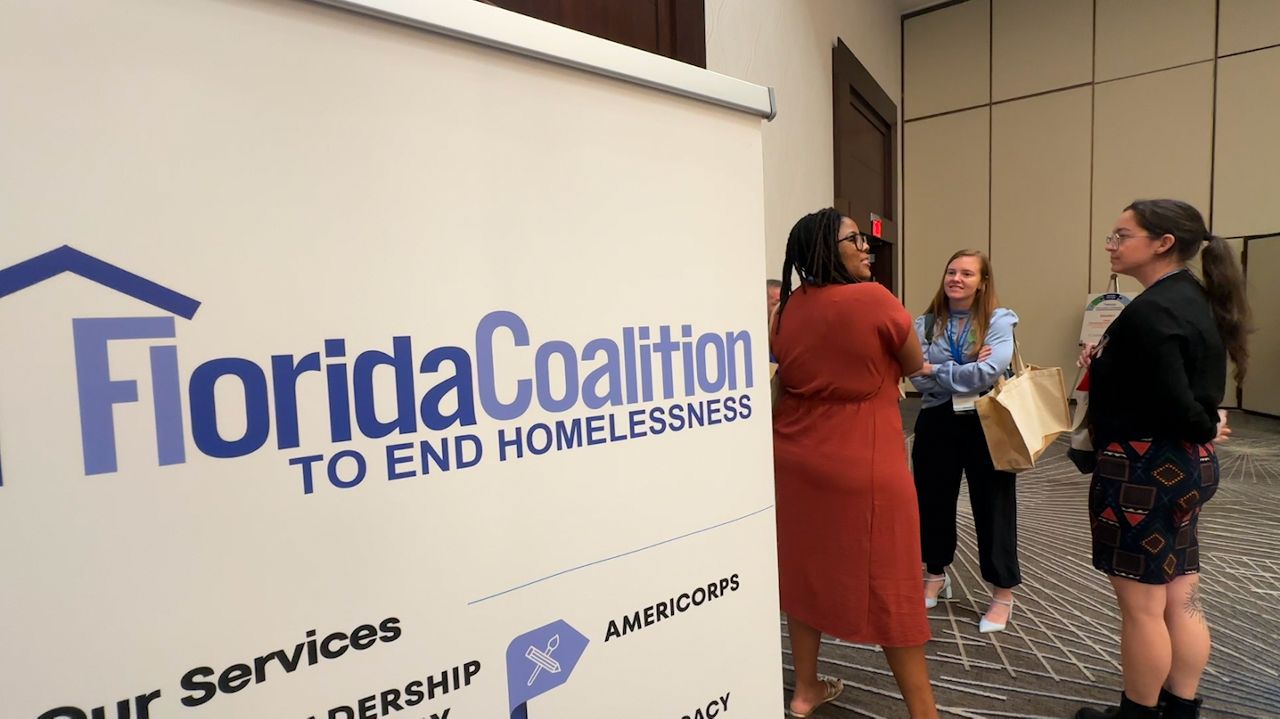ORLANDO, Fla. — Policy leaders, housing experts and advocates from across Florida gathered in Orlando this week for the 2025 Florida Conference to End Homelessness.
The three-day event focuses on collaboration, strategy and solutions at a time when communities face rising housing costs, limited affordable options and reduced federal support.
What You Need To Know
Policy leaders, housing experts and advocates from across Florida gathered in Orlando for the 2025 Florida Conference to End Homelessness
The three-day event focused on collaboration, strategy and solutions at a time when communities face rising housing costs, limited affordable options and reduced federal support
A major challenge for Florida’s homeless services comes from the end of federal support for the SOAR TA (Technical Assistance) Program, which helped individuals experiencing homelessness apply for Social Security disability benefits
The coalition estimates over 30,000 Floridians are currently without stable housing — a number that continues to grow. Conference leaders emphasize the need for stronger collaboration among public agencies, housing authorities and developers to address the crisis
From city outreach teams to nonprofit organizations, Florida is working to meet people experiencing homelessness where they are — offering resources, support, and, sometimes, a second chance
“One of the great things about this conference is it’s not just about the training in the classroom — it’s the networking and the problem-solving that happens outside of the workshops,” said Leeanne Sacino, executive director of the Florida Coalition to End Homelessness, which hosts the annual event.
A major challenge for Florida’s homeless services comes from the end of federal support for the SOAR TA (Technical Assistance) Program, which helped individuals experiencing homelessness apply for Social Security disability benefits. The program’s technical assistance center, which trained thousands of professionals nationwide, closed in August.
“So SOAR connects individuals with Social Security income. If an individual is disabled and doesn’t have Social Security, a SOAR-trained professional can take the legwork, reduce the need for legal services, and lower the cost for someone to get on Social Security and Medicaid,” Sacino explained.
Brian Postlewait, CFO of the Florida Coalition to End Homelessness, said, “It’s a very pivotal year in this country around homelessness. Policy changes could reduce funding for permanent supportive housing — and that’s a problem. We’ve worked so hard over the last 10 years housing the hardest-to-house people in our communities.”
The coalition estimates over 30,000 Floridians are currently without stable housing — a number that continues to grow. Conference leaders emphasize the need for stronger collaboration among public agencies, housing authorities and developers to address the crisis.
“At the end of the day, our goal is the same — to make sure every Floridian has a safe, stable place to live,” Sacino said.
The Florida Conference to End Homelessness continues through Friday in Orlando, bringing together stakeholders determined to create actionable solutions for one of the state’s most pressing issues.

